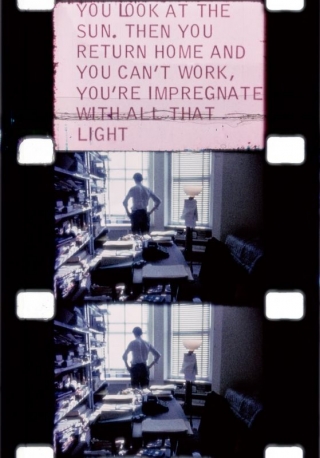Date: 25 October 1998 | Season: Underground America
JONAS MEKAS
Sunday 25 October 1998, at 3:00pm
London Barbican Cinema
Without Jonas Mekas the history of experimental film would be a very different story. After arriving in America after the war Mekas devoted himself to film, founding the New York Film-Makers’ Cooperative, Anthology Film Archives and Film Culture magazine. His single-minded enthusiasm and motivation has brought much attention to the avant-garde film. Walden is his diary from 1964-1968, containing images from the most exciting time for experimental film and is an A-Z of the underground culture with Warhol, Ginsberg, Lennon, Leary and a cast of thousands. Watch it and see history unfold.
Jonas Mekas, Walden (Diaries, Notes and Sketches), 1964-69, 180 min
PROGRAMME NOTES
JONAS MEKAS
Sunday 25 October 1998, at 3:00pm
London Barbican Cinema
Jonas Mekas was born in Lithuania in 1922 and travelled to New York with his brother Adolfas in 1949, having spent the previous four years in displaced persons camps in Western Europe. Soon after their arrival in the USA they bought a 16mm camera and began to document the lives of Lithuanian immigrants in Brooklyn. The next year Jonas started to attend the Cinema 16 screenings and became involved in the experimental film community. In 1955 the two brothers founded Film Culture magazine, which was at first devoted to Hollywood and the traditional narrative form. There is a notorious article from the third issue in which Jonas attacks the avant-garde, but within a few years he had become the most defiant advocate and fearless promoter of experimental film. In 1958 he started to write the Movie Journal column for the Village Voice and was one of the instigators of the New American Cinema Group, an organisation committed to cinema as a personal expression. 1962 saw the formation of the Film-Makers’ Cooperative, a nondiscriminatory distribution centre for independent film and two years later Mekas began the Film-Makers’ Cinematheque, which was devoted to presenting experimental work. Anthology Film Archives was established in 1970 as a non-profit institution dedicated to the promotion and preservation of cinematic art.
The Mekas brothers worked together on their first film Guns Of The Trees (1960-61), a conventional independent feature film about two couples (one black, one white) living in the shadow of the atom bomb. Then Jonas abandoned the narrative form and after documenting a performance by the Living Theatre in The Brig (1964), he began to assemble film diaries which were made by continually stopping and starting the camera in reaction to the events around him. Walden (Diaries, Notes and Sketches) (1964-69) was the first section of the diaries to be combined into a definitive volume, though Lost Lost Lost (1949-75) includes footage shot at an earlier time. Walden is a who’s who of the avant-garde community of the 1960s and has appearances by many filmmakers, musicians and artists, together with beautiful pastoral footage of the parks and nature of New York City. He Stands In The Desert Counting The Seconds Of His Life is a further diary covering the years 1969 to 1985. His latest film is Birth Of A Nation (1955-1997), which consists of 160 portraits of independent filmmakers and film activists – “the invisible but essential nation of cinema”. Jonas Mekas is still the artistic director of Anthology Film Archives and continues to be one of the driving forces behind New York’s alternative film culture.
WALDEN (DIARIES, NOTES AND SKETCHES)
Jonas Mekas, USA, 1964-69, 16mm, colour, sound, 180 min
“Since 1950 I have been keeping a film diary. I have been walking around with my Bolex and reacting to the immediate reality: situations, friends, New York, seasons of the year. On some days I shot 10 frames, on others 10 seconds, still on others 10 minutes. Or I shot nothing. When one writes diaries, it’s a retrospective process: you sit down, you look back at your day, and you write it all down. To keep a film (camera) diary, is to react (with your camera) immediately, now, this instant: either you get it now, or you don’t get it at all. All the footage you’ll see in the Diaries is exactly as it came out from the camera: there was no way of achieving it in the editing room without destroying its form and content. Walden contains material from the years 1964-69, strung together in chronological order. For the soundtrack I used some of the sounds that I collected during the same period: voices, subways, much street noise, bits of Chopin (I am a romantic) and other significant and insignificant sounds.” (Jonas Mekas on Walden in the New York Film-Makers’ Cooperative Catalogue #5, 1971)
Back to top
